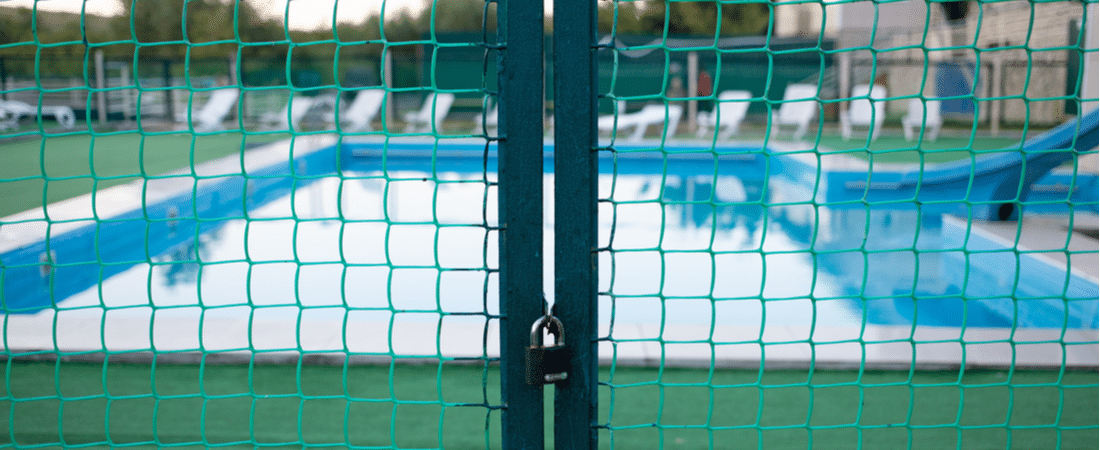Does an HOA have the power to restrict pool access due to COVID-19? This HOA board is concerned about liability and refuses to open it for residents.
Q: How do I get our homeowner’s association board to open up our building’s three pools, all of which have been closed since March due to the pandemic? The board members say they are concerned that if someone gets COVID-19, that they will be sued and will have to pay a huge sum to settle the dispute.
There are about a dozen of us that are avid swimmers and use the pools. The board refuses to offer any arrangements at this time. I am no lawyer, but all pools in the surrounding communities have made modifications for residents and members to return to their pools.
What can we do?
Does an HOA Have the Power to Restrict Pool Access Due to COVID-19?
A: Well, unfortunately you, individually, probably can’t force a homeowner’s association to do anything. But, you might be able to encourage them to move more in your direction.
Start by figuring out what your state and local community guidance is with respect to outdoor or indoor pools. You should understand that, depending where you live, some state regulations relating to COVID-19 may be more stringent than those in your local municipality, and you might have to abide by the state regulations. In other areas, local laws may be more stringent than state laws and the association must abide by local laws and ordinances.
Since you didn’t provide specific information indicating where you live, we can’t tell you what our local or state regulations say. Having said that, if your state and local municipalities allow for outdoor pools to be open and provide guidelines as to how to limit and/or handle the number of people using the pool, you can certainly bring that information to the board.
But beyond state and local guidelines, your association board is tasked with a single job: manage the association. And, it has broad authority to handle the affairs of the association in the best interest of its members. They can decide to be more cautious than other associations or pool clubs and can decide to restrict pool usage to a greater degree than other associations.
As Ilyce’s mom used to tell her when she was a kid, “I don’t care what the other parents do.”
You and your fellow residents voted in the board and they represent you. If a significant number of your fellow residents feel that state and local guidelines about pool usage are safe enough, you should let your association board know that.
Can the HOA Safely Open the Pool for Residents?
There are ways to handle the (very real) safety concerns. If the board knows most residents want to use the pool, and using the pool doesn’t break any laws or regulations, the association can set up specific guidelines for pool use. They can limit pool use to owners only (no guests) and have pool owners sign a document detailing the new pool rules. They could require a negative COVID-19 test before pool usage and limit the hours. Some associations have unit owners sign a liability waiver whenever they use workout equipment and other recreational facilities. The board could add some language to their documents letting owners know that there may be a higher risk of contracting COVID-19 by using the pool and that the owners swim at the pool at their own risk.
According to the CDC’s website guidance as of July, 2020, “there is no evidence that COVID-19 can be spread to humans through the use of recreational waters.” But that doesn’t mean you can’t catch COVID-19 or, if you have it, spread it to other pool users. There is a lot that isn’t known about the disease.
Your board is erring on the side of caution, perhaps because some of your fellow residents may be more at risk or perhaps because they can’t agree on how much risk the association should take. Remember, their job is to represent all homeowners, not just the vocal ones or those who swim.
Being on an association board is a balancing act – and, generally, a thankless one.
More on Topics Related to HOAs and COVID-19
Should You Postpone Condo Board Elections During COVID-19?
What Can I Do If My Building Isn’t Following Local COVID-19 Rules?
COVID-19 Pandemic: How Can You Enforce a Quarantine?







I read your article in today’s Hartford Courant regarding the use of a closing attorney and I strongly agree. My family employed a wonderful attorney through three generations. Ed Klemonski advised us on all of our real estate transactions, including refis, from my parents first (and only) home purchase through our daughter’s first (and so far only) home purchase. Unfortunately he has passed away and if or when we have another real estate transaction I don’t know where we’ll find another attorney like him.
Martin,
It’s a lovely tribute to someone who had provided such great service to your family over many years. Thanks for sharing. I’m sure you’ll find someone who can help when the need arises. The trick is to interview well, and check references.
Best,
Ilyce Glink